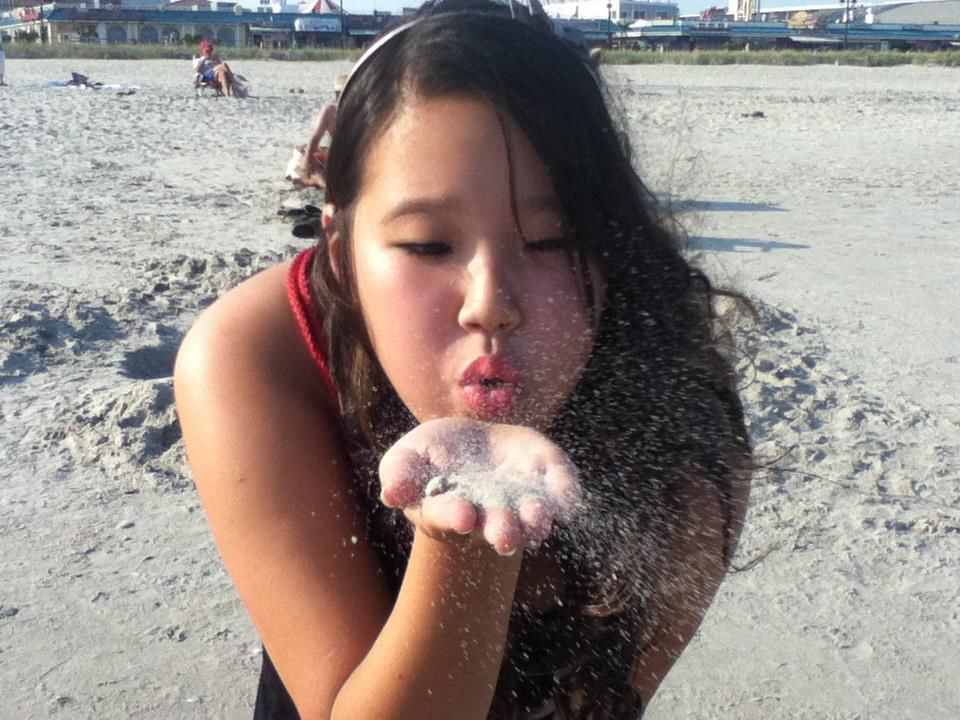Written by Tara Holm…and her mom, Linda Holm
My story all started with one word that none of us knew. “What?!” I heard my mom say on the phone. “What the heck is H. pylori? How could that have happened? And what do we do now?” The call was from the nurse at the doctor’s office, reporting the results of my blood test. That’s how it all started in June 2012. I was having trouble with my stomach. It just hurt all the time, and I never knew why. I told my mom, and she said, “If this doesn’t stop, I’m taking you to the doctor.” Well, that day came. I lied and told my mom I felt good so I didn’t have to go to the doctors, but it didn’t work with her. We went to the doctor. I told my doctor about the pain, and at first she thought it was just stuff I ate. I had to tell her how I wasn’t sleeping at night because I had so much pain – more at night than in the daytime. The doctor said we should draw blood and see if I had Crohn’s or Celiac disease. The results came back, and I didn’t have any of those, but I had tested positive for H. pylori. My mom and I were shocked. We didn’t even know what it was. Since then we’ve learned a lot about it.
In 1981 Barry Marshall and Robin Warren met to start talking about stomach ulcers, and experimented with what causes them. They both knew it just wasn’t caused by stress. They found it was caused by bacteria. A bacterium called Helicobacter pylori (Also known as H. pylori for short). H. pylori is a gram negative bacteria that is found in the stomach area and it has a very strange life – it lives in the protective mucous lining of the stomach. It has a little whippy tail called a flagellum that allows it to swim into the protective lining of the stomach away from any stomach acid that might kill it. Marshall and Warren won the Nobel Prize in Physiology in 2005 for what they found out about H. pylori and stomach ulcers.
– – – – –
From my research, half of the people in the world are infected with H. pylori, and 80% of them don’t know it because they are without symptoms.
I believe that was the case with our daughter, who was born in India. Infection with H. pylori is much more common in third world countries due to the lack of sanitation. I think our daughter came to our family with H. pylori, but the symptoms didn’t manifest themselves for years. She was asymptomatic until she encountered the pressures of the teenage years in high school. Then the infection spiralled out of control.
Even Medical professionals didn’t always take her problems seriously, as they see too many cases of eating disorders among teens. I was told that she should see a psychiatrist. But she wasn’t sleeping, she wasn’t eating, her weight was dropping, her grades suffered in school, and she was increasingly becoming withdrawn. Things just weren’t right, her stomach hurt all the time, and as a parent I had to continue to pursue all avenues until I got an answer and our child got some relief.
We were fortunate that we received a referral to a pediatric gastroenterologist. I believe my daughter’s H. pylori was antibiotic‑resistant. That’s why it took three rounds of nasty medicines and nearly a year of watching her suffer before the infection was finally eradicated.
The good news is that she is now free of H. pylori infection, she is eating and sleeping, has regained the weight she lost, is pulling straight A’s in school, and has begun to be involved again in school and enjoying activities that a teenager should be doing. We now have our daughter back – and we are connected in a special way because we have been through that ordeal together.
The reason I wrote this article is that I wanted to share our story with other families of children born in third world countries. What happened to our daughter could happen to other foreign-born adoptees. Medical professionals do not always have the experience with foreign-born children to recognize symptoms of H. pylori infection. Adoptive parents need to be aware so that they can advocate on behalf of their children.
– – – – –
During my junior year I did not want to do anything. I hurt all the time. I didn’t sleep because my stomach hurt. I didn’t eat because it hurt. I was lazy. I didn’t tell anyone about it. I hid my feelings from everyone, even my parents. I think it really hurt my mom because she knew I was sick, but didn’t know how to help me. She thanks the doctors so much now for helping me out. Someday I’ll tell her how I felt, or she can read this paper and see how I felt during this whole thing. I was lonely and depressed. I didn’t know what to do. It was hard to focus on anything. I didn’t even go to my Junior Prom because I didn’t feel good. I tried to put a smile on my face, and tried to hide the pain. Honestly, I was getting used to having H. pylori. I felt like I was never going to get better.
But you know what? When I took my last test of H. pylori, I failed it – which is a good thing. It was all over. I was feeling so much better. I am eating more now and making the most of my Senior year of high school. We went to the doctor, and she released me from the Pediatric Specialty Clinic on October 25, 2013. She said, “If anything happens, we can always see you – even if you are 18.”
That made me feel good. I was done with H. pylori, and I don’t have to worry as much as I was. All I can say is, “No more nasty medicine!”


